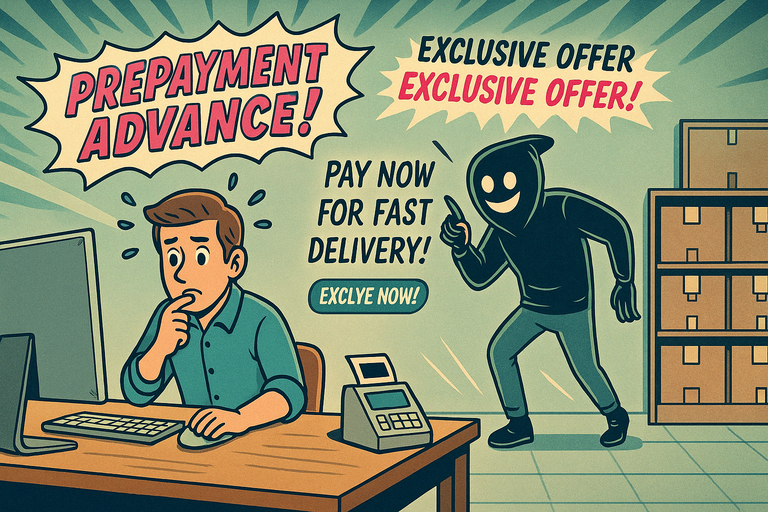Prepayment Fraud
Avoiding Scams Requiring Upfront Payments
Prepayment fraud involves scammers requesting payments in advance for goods, services, or opportunities that are never delivered. Victims are often lured by false promises of lucrative deals or urgent requests.

Things to Be Careful About:
- Unverified Sellers: Be cautious of vendors or service providers without established credibility or reviews.
- Urgent Payment Requests: Scammers often demand immediate payment to secure a deal or prevent loss.
- Lack of Documentation: Fraudsters may avoid providing written agreements or contracts.
- Overly Attractive Deals: Offers that seem too good to be true are often fraudulent.
- Payment via Untraceable Methods: Requests for wire transfers, gift cards, or cryptocurrencies are red flags.
Actions You Can Take:
- Verify the Seller: Research the seller’s reputation and history through reviews, ratings, and trusted platforms.
- Request Documentation: Demand written agreements detailing the terms and conditions of the transaction.
- Use Secure Payment Methods: Opt for credit cards or other payment options with fraud protection.
- Check Refund Policies: Ensure there are clear refund or dispute mechanisms in place.
- Report Fraud: Notify consumer protection agencies or platforms if you suspect prepayment fraud.
Prepayment fraud exploits trust and urgency to deceive victims. By remaining vigilant and verifying transactions, you can protect yourself from these scams and make safer financial decisions.
Still worried about online scams?
If something doesn’t feel right, you don’t have to deal with it alone. Get instant guidance from ScamAvert AI, or try the free Open Beta app for ongoing protection.
No credit card required
